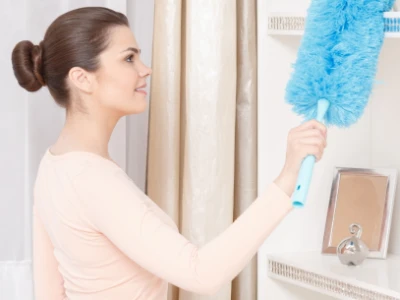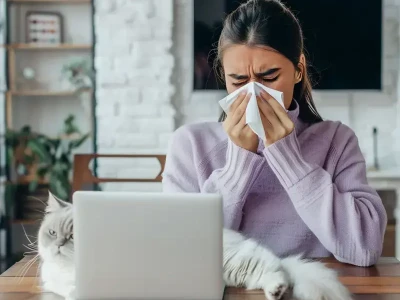Causes, Symptoms, and Advice for Mold Allergies
More mold. More allergies.

* You have to avoid the allergy trigger like Dust
Mold and mildew are fungi that lives everywhere. You may be allergic to the spores of molds or other fungi.1
In this page you will find information about
Fungus among us all year long
Mold and mildew are tiny fungi. They can live everywhere, So if you have persistent allergic symptoms that occur through several seasons, you might be allergic to mold.1
There are hundreds of types of molds, but not all of them cause allergy symptoms. The most common allergy-causing molds include Alternaria, Aspergillus, Cladosporium, and Penicillium.3
Places where mold grows
Molds are tiny fungi whose spores float through the air. They like damp environments and need Four things contribute to mold growth:3
Air
Appropriate temperature
Water
Food
Mold allergy causes and symptoms
They are different from plants or animals in how they reproduce and grow. The “seeds,” called spores, travel through the air. Inhaling the spores causes allergic reactions in some people.1
If you are allergic to mold, your immune system is overly-sensitive to specific mold spores and treats them as an allergen When you inhale the mold spores, your immune system triggers symptoms such as sneezing, itchy, watery eyes, runny nose, nasal congestion or itchy nose, mouth and lips.3
Tips to minimize mold exposure
- There is no cure for allergies. But you can reduce your allergy symptoms by avoiding contact with the mold spores. Several measures will help:
- When you’re inside
- Keep doors and windows closed.4
- Lower your indoor humidity.1
- Use central air conditioning, This can help trap mold spores from your entire home.1
- Prevent mold and mildew build up inside the home. Pay close attention to mold in bathrooms, basements and laundry areas. Be aggressive about reducing dampness.1
- When you’re outside
- There may be more allergens on surfaces than in the air. Surface allergens enter the air easily when you disturb them by dusting or sitting.5
- Start taking medications as soon as you notice allergy symptoms.1
- Speak to your doctor for more information on allergies.1

* You have to avoid the allergy trigger like Dust.
Telfast® helps relieve your allergies,
in addition to avoidance of mold.2
Telfast® helps you live better life by relieving many common allergy symptoms. If you experience sneezing, runny nose, itchy or watery eyes or an itchy nose and throat, nasal congestion, swelling of nasal passages, Telfast® has products that can help. Now you can live with relief— everywhere.
Telfast is a non-sedating², Over the Counter (OTC) antihistamine medications, allergist-recommendedallergist recommends oral second-generation/less sedating antihistamines for patients with Allergic Rhinitis and primary complaints of sneezing and itching.⁶
Not used in children less than 2 years.
Recommended Reading
1. Asthma and Allergy Foundation of America, Mold Allergy, Available at: https://www.aafa.org/mold-allergy/ ; last accessed:29/3/2022
2. Ministry of Health, Telfast approved leaflet, approval date 29/11/2018.
3. American Academy of Allergy, Asthma, and Immunology, Mold Allergy, Available at. https://www.aaaai.org/Conditions-Treatments/allergies/mold-allergy ,Last accessed:29/3/2022
4. American Academy of Allergy, Asthma, and Immunology, Outdoor Allergens , Available at. https://www.aaaai.org/Tools-for-the-Public/Conditions-Library/Allergies/Outdoor-allergens-TTR , Last accessed:29/3/2022.
5. Asthma and Allergy Foundation of America, Control Indoor Allergens to Improve Indoor Air Quality, Available at: https://www.aafa.org/control-indoor-allergens/ ; last accessed:29/3/2022.
6. Seidman MD, Gurgel RK, Lin SY, et al. Clinical practice guideline: allergic rhinitis. Otolaryngology–Head and Neck Surgery. 2015 Feb;152(1_suppl):S1-43.
Approved by Egyptian Drug Authority: HF0253OA3948/072025. Invalidation date: 28/07/2027. Kindly report any violated online promotional, educational and awareness material not having this message to The General administration for Regulation of Marketing & Advertising Materials at: www.edaegypt.gov.eg

HF0253OA3948/072025
28/07/2027











